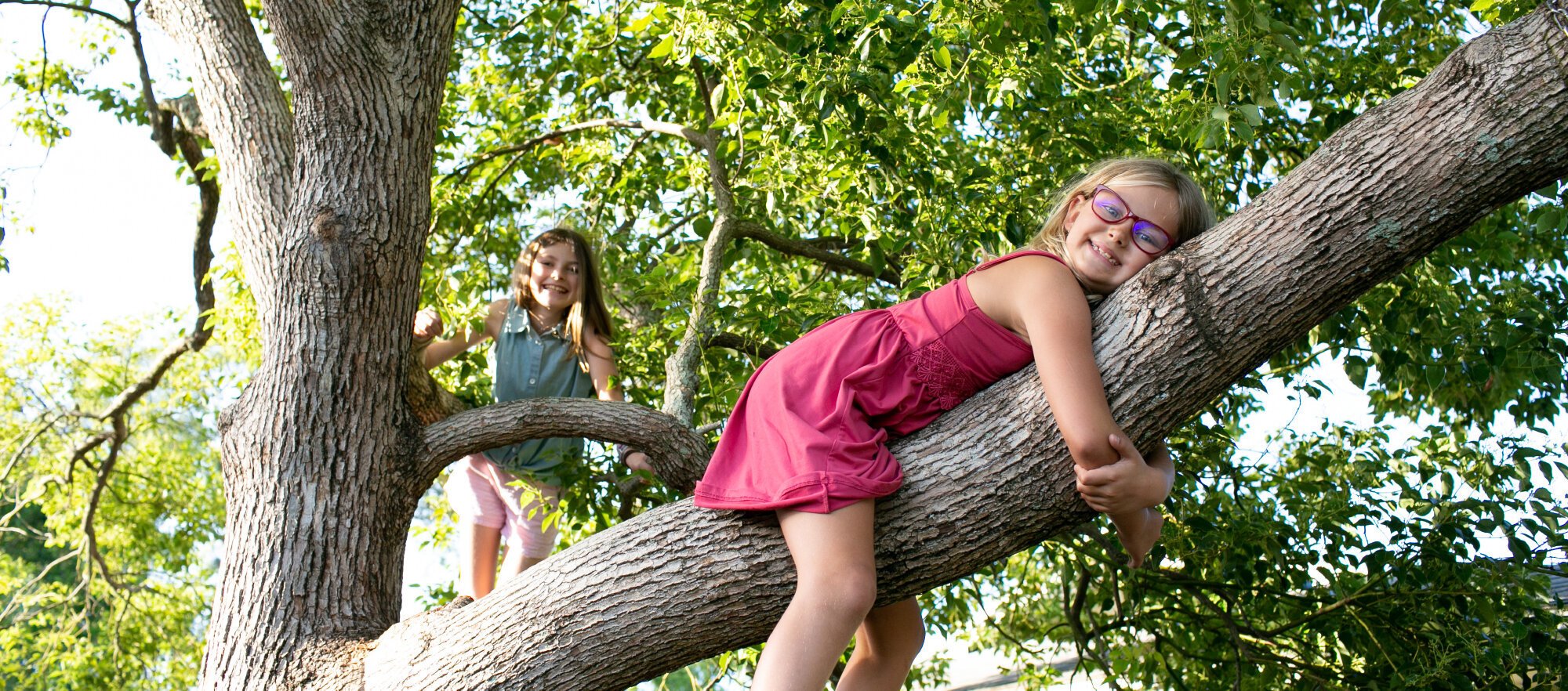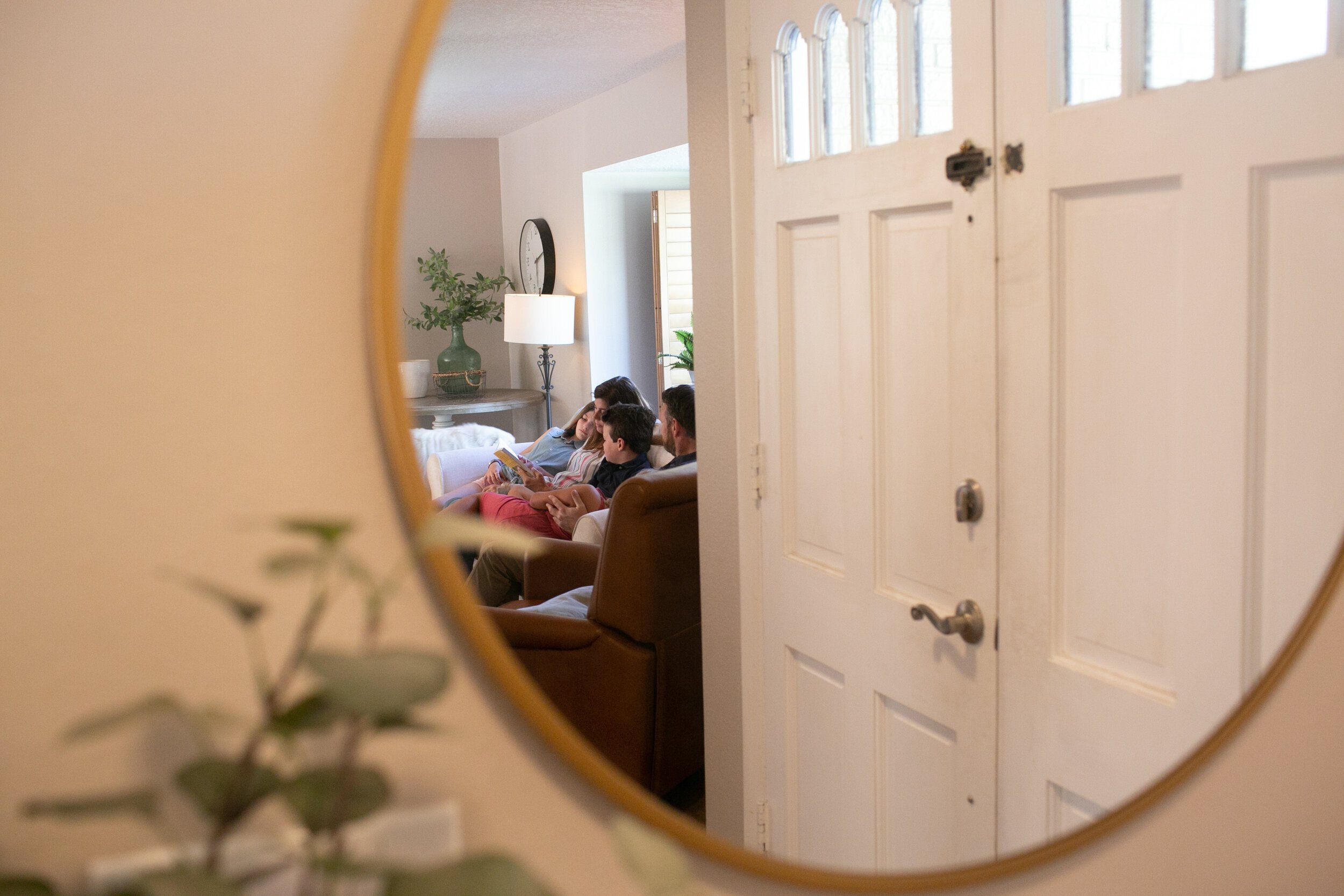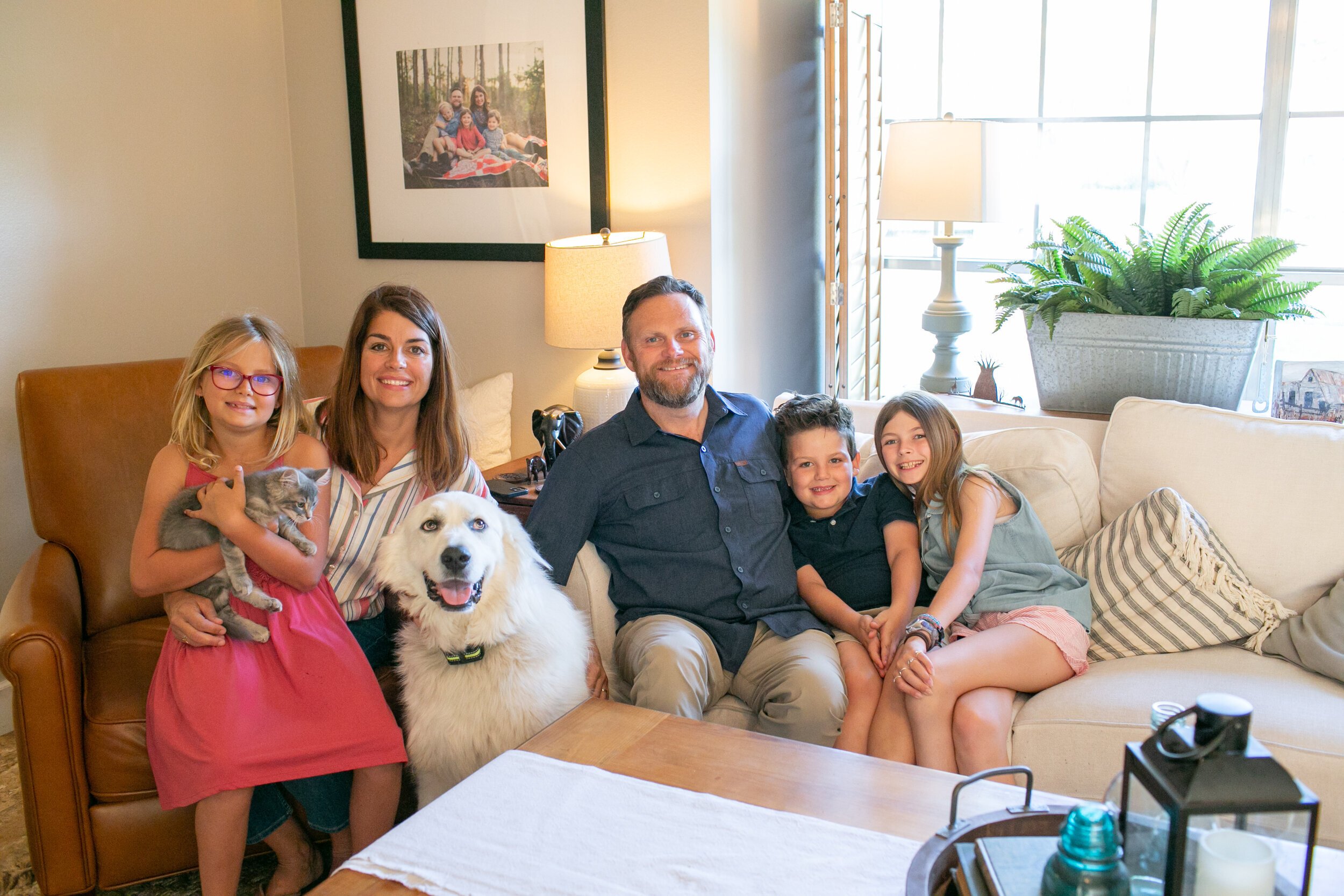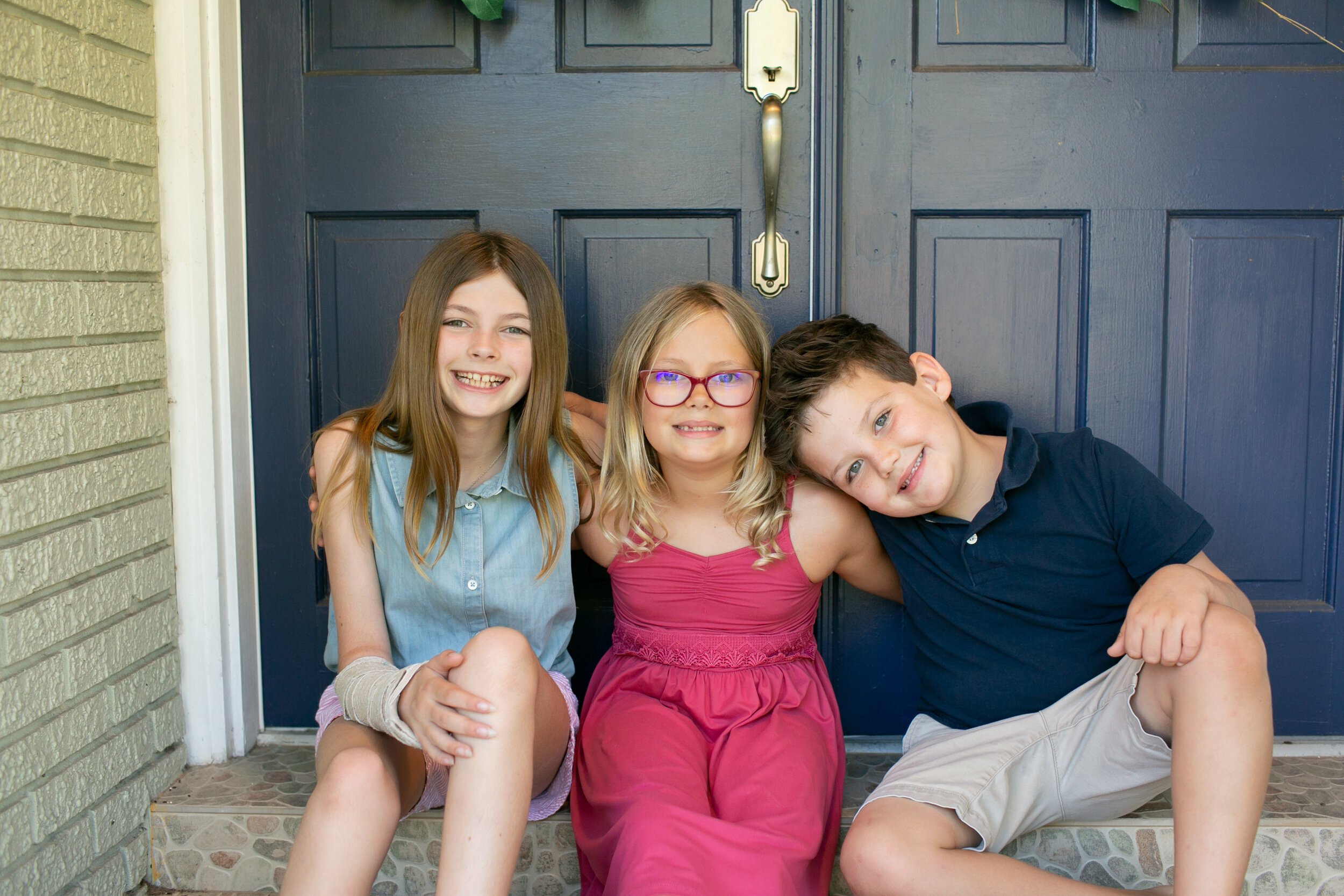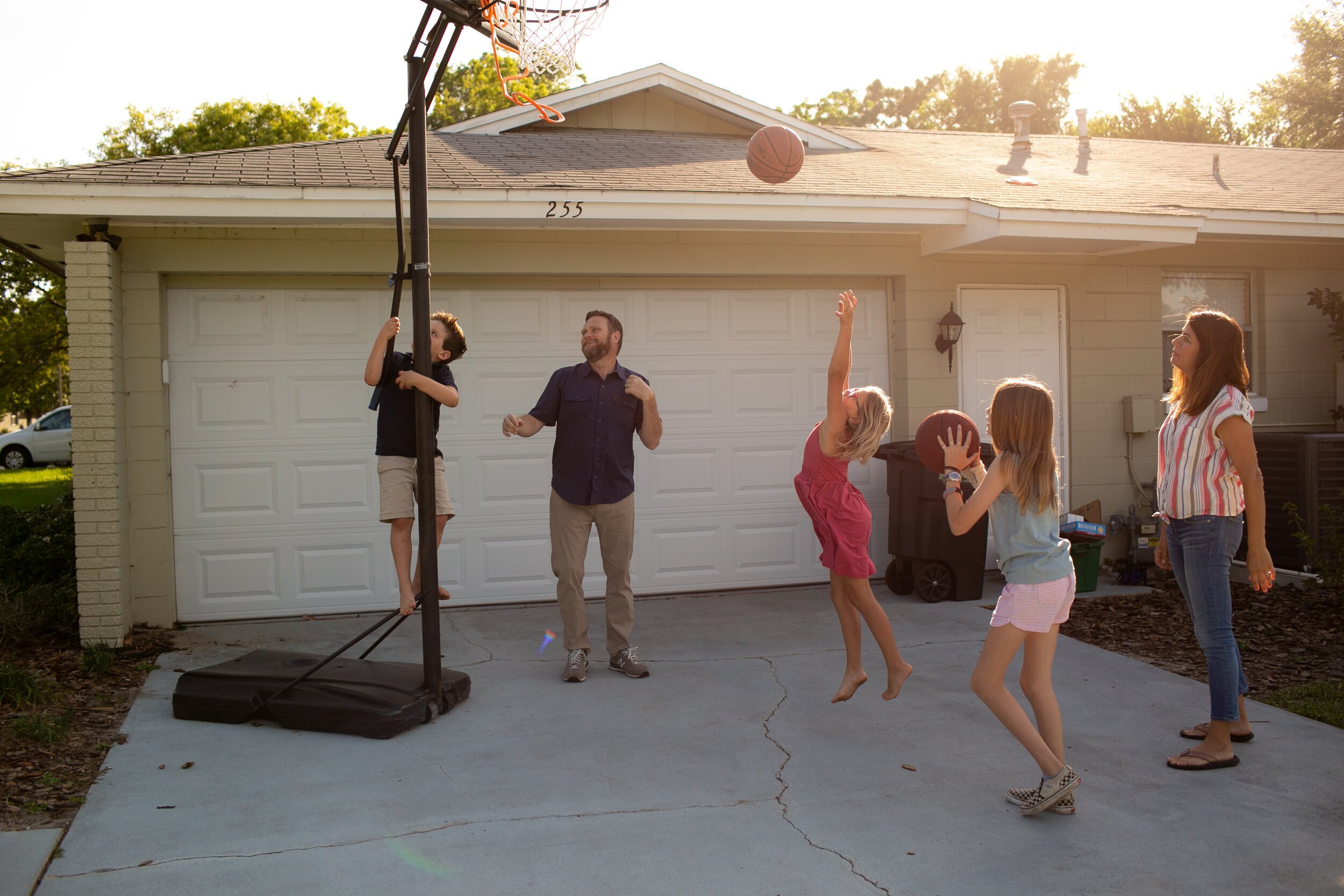Sibling Friendships: an Interview with O.J. and Rachael Aldrich
In the past year, my kids have spent a significant amount of time squabbling over toys and snacks… And it’s made me wonder, what small things could we integrate into our daily lives that would yield a future friendship? I voiced this question to my Base Camp staff team, and the immediate response was: Talk to O.J. and Rachael Aldrich. So I did! Our interview gave me a new perspective on the impact of our words, traditions, and what coming together as a family means. And I’m so excited to share their simple and intentional philosophy for raising friends with you…
I understand you have some specific goals for your family! Can you share what those are, and how they came about?
O.J.: When we first began talking about wanting to start a family, we had a few big-picture values in mind. We knew we wanted our kids to grow up in church, to know Jesus, and be close to our extended family. But we didn’t have a lot of intentionality in how we were going to do that.
Rachael: A few years after our first daughter was born, we did a study about parenting, called Future Family with Andy Stanley.
O.J.: That Bible study put into focus what we wanted longer term. It gave us a vision for doing the hard relational work now, and really prioritizing closeness as a family, so in the future we’ll have influence in our kids’ lives and their faith. What we do now has ripple effects for generations, and we have a limited amount of time before our kids are gone. So we want to make the time we have with our kids really count.
Rachael: In the study, Andy shared some goals he and his wife had, and one really stood out to me.They wanted their kids to be best friends one day when they were older. I’d never heard that idea put into words before, and I knew it was something I wanted.
How have you encouraged friendships between your kids?
Rachael: There are a few things we’ve done. But before I get into some of our strategies, I don't want to discount prayer. I remember asking a woman once, “Your kids love Jesus, what did you do?” She told me to pray, pray, pray... because it’s just by the grace of God. It’s an obvious answer, but praying for your kids matters. When I’m with the kids, I pray in front of them for their friendship, and that they’ll be best friends one day.
Rachael: Kids pick up on the things we say and it gets in their head. I try not to say negative things about siblings that would set them up against each other, like, “she’s just jealous of you.” Instead, I try to make my words ones I hope they’ll take with them, reminding them, even in moments of conflict, “you love your sister.”
O.J.: We keep that at the forefront in our conversations with them. For example, I’ll ask Maverick, our son, “Why would you want to tease someone you love?” Or when Andi wants to use AJ’s art supplies and that’s creating conflict, we’ll remind AJ, “She wants to use your markers because she loves your artwork.” We don’t have to step in and figure out their problems for them, but we can shepherd them toward each other, remind them what’s most important, and create space for them to come up with their own solutions.
Can you talk more about that? How do you create space for them to solve conflict?
Rachael: Well, we just got a cat and they have been fighting over him all the time. I looked at O.J. the other day, and I said, “This wasn’t meant to create more fights.”
O.J.: The cat was supposed to bring unity. The kids were supposed to take care of it together. But it’s become a competition for who gets to hold the cat, who the cat prefers... I got frustrated and told them, “You have one week to figure out how to share the cat or the cat’s leaving.” Then I had to backtrack a bit... We told the kids they needed to make a system where the cat would bring them together and not pull them apart.
Rachael: I realized I had not trained them in how to work through that kind of issue. We started figuring out together how they could share the time, and take turns caring for the cat. It ended up being a great opportunity to be intentional with them. I helped to oversee the process, because while I want them to care for each other, I don’t want them to parent each other. I coached them, and encouraged them to figure out a system that worked for each of them, so they could keep the cat, and then let them be in charge of getting it done.
What other strategies have you used to shepherd your kids toward each other?
O.J.: Something that may sound counter-intuitive is we try to give them one-on-one time. Andi often needs the most because, as the middle child, she can get kind of lost in the shuffle. When her emotional tank is empty, no amount of sibling time will fill her back up. What she needs is to run errands with Rachael or go out for ice cream with one of us. Giving one-on-one time isn’t avoiding sibling time, it’s recognizing that time away is helpful for them, and helps them be better siblings. We want to parent our kids as individuals and help them be who they are, which isn’t the same as parenting them separately.
Can you talk more about that, the difference between parenting separately and parenting individually?
Rachael: I remember thinking I wanted to parent all my kids the same way. But they’re individuals, and each so different, it ends up playing out differently.
O.J.: It’s tempting to think we have to treat our kids fairly to make them best friends, give them the same consequences and same rewards, but that wouldn’t work in our house. We try to parent them as individuals. Knowing what’s important to each of them isn't pitting them against each other, but helping them be better versions of themselves when they do come together.
Rachael: And because they’re different, we’ve had to find those things that bring us back together. It’s easy to forget what you have in common when everyone is tired or fighting. If we need a win, we go to Jeremiah’s, or we go to Sonic and get slurpees.
What ways have you found to be intentional in creating time as a family?
Rachael: Family nights together, like family movie night or game night, special traditions, family vacations… Doing things together is a big deal to us.
O.J.: We’ve done that parenting study Rachael mentioned three or four times, and every time people share what they remember about growing up. Even though we all come from wildly different economic backgrounds, everyone always says, “It wasn’t the stuff, it was the experiences that shaped our families.” We want to really focus on spending time together and creating shared experiences and memories.
Rachael: We also try to celebrate the good things that happen in each other’s lives together. Big things and little things, like when Maverick learned to snap his fingers for the first time. I remember how sweet it was seeing how excited his sister, AJ, got for him. We look for ways to cheer each other on. We all try to go to each other’s games and events, hang up everyone’s artwork on our kitchen wall, and find ways to encourage each other.
What advice would you give to a family who wants to make sibling friendships a priority, whether their kids are little or almost grown?
O.J.: If you’re just getting started in your parenting journey, I really recommend Andy Stanley’s “Future Family” study to help you think down the road to your future goals. To be intentional and to be on the same page, you have to know what you want in the end. When you have a larger picture in mind, and core values, the smaller stuff follows in the day to day. That really helped us.
Rachael: My immediate thought is to start by creating space for your family. One night a week spent doing something together, even as kids get older and start going in different directions, it is a great way to develop a family culture.
O.J.: I agree. It’s never too late. And if you realize that maybe you haven’t brought your kids toward each other in the way you’ve parented, apologizing to your kids and asking for grace and forgiveness is an awesome way to not miss the opportunity that’s remaining. It’s not too late to create shared memories and meaningful relationships.
O.J.: I want to add that caring for yourself as a parent is so important. You can’t create good sibling relationships without healthy relationships in your own life, and healthy boundaries. Just like we use one-on-one time to help our kids be better versions of themselves, we need to be filled up to be better parents. When we are all healthy, and freed up to be better Christ image bearers, that makes us a better family.
Thank you so much, O.J. and Rachael, for sharing your wisdom with us!
O..J. and Rachael have been a part of Summit church since 2011, when O..J. first joined staff. He now serves as the Lake Mary campus pastor. They love playing games, watching movies, and going on adventures with their kids: AJ, Andi, and Maverick. In addition to their dog, Guster, they recently added another pet: Gator, the kitten (who got to stay).
You can reach out to O..J. at: ojaldrich@summitconnect.org.

